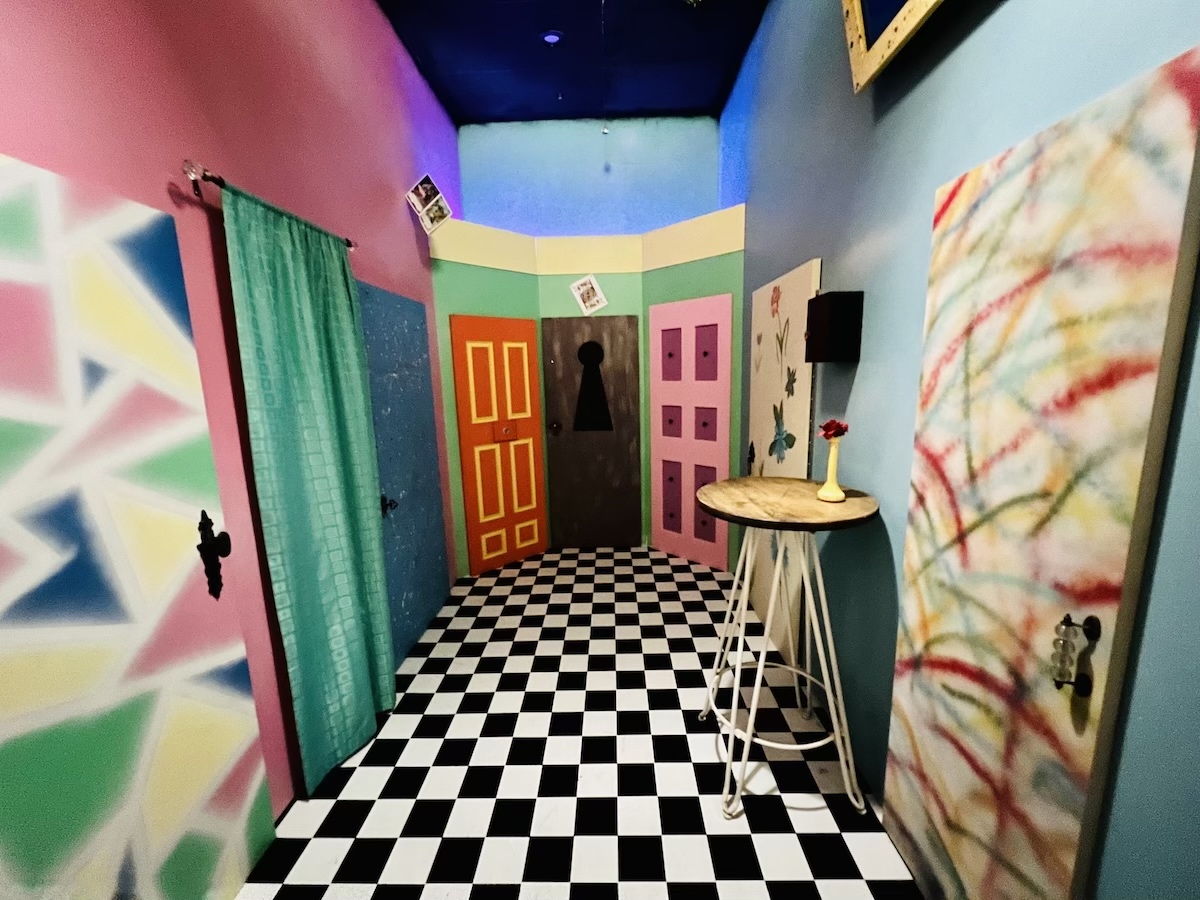Team Methods: Exactly How to Collaborate Successfully in an Escape Room
Teams have to proactively pay attention to each participant's insights, assign functions that align with private staminas, and keep routine check-ins to guarantee focus and protect against redundancy. By fostering an environment that values cohesion and adaptability, teams can considerably heighten their performance and success rates.
Establish Clear Communication

To assist in clear communication, it is necessary to designate a central point of contact for information circulation. This function entails summarizing searchings for and recommended techniques to ensure every person remains on the same web page. Furthermore, adopting a methodical strategy to conversations can prevent chaotic exchanges. As an example, quick, focused updates from each employee can maintain the team educated without frustrating them with information.

Appoint Duties Tactically
While clear communication sets the foundation for effective teamwork, designating functions purposefully makes sure that each employee's strengths are made use of efficiently. In a getaway space scenario, the time-sensitive and intricate nature of obstacles necessitates an efficient approach to job delegation. By recognizing and leveraging private expertises, teams can maximize their analytical capacities and enhance general efficiency.
First, examine the unique skills and features of each individual. As an example, somebody with an eager eye for detail may master finding covert objects, while a logical thinker might be much better matched to addressing challenges - best escape room. It's just as crucial to have a leader that can look after progress, manage the timeline, and make decisive telephone calls when essential. This role usually requires solid organizational and social skills.
2nd, guarantee that roles are versatile and adaptable. As new challenges arise, the group should be able to pivot, reapportioning tasks as required. This versatility aids preserve energy and prevents traffic jams that can happen as a result of rigid function projects.
Inevitably, a critical method to function assignment not just maximizes the staminas of each staff member but additionally fosters a natural atmosphere, driving the team in the direction of an effective retreat.
Make Use Of Diverse Abilities
Acknowledging and using the diverse abilities within your group can substantially boost your performance in an escape space. Each staff member brings distinct strengths to the table, and effectively leveraging these abilities can quicken problem-solving and improve overall performance. For instance, a group member with strong logical abilities could stand out at analyzing intricate codes or patterns, while one more with keen observational capacities might quickly identify surprise ideas that might ignore.
Encourage group webpage participants to articulate their insights and concepts quickly, making sure that all prospective remedies are taken into consideration. Furthermore, appointing jobs that straighten with each participant's strengths can protect against navigate here bottlenecks and make sure that progression is constant.
Moreover, diversity in abilities commonly converts to variety in believing styles, which is indispensable in a retreat room setting. While some difficulties may require logical thinking and precision, others could gain from creative and association of ideas. By identifying and leveraging this variety, groups can deal with a broader variety of challenges better, consequently raising their opportunities of an effective escape.
Manage Time Efficiently

First, designate preliminary minutes for a fast study of the area. Recognize noticeable puzzles and separate tasks based on team members' toughness, making certain that nobody is idle. Set internal time checkpoints to assess development occasionally; for instance, goal to have half the puzzles resolved by the mid-point of the game. This method can assist maintain the group focused and stop time from escaping undetected.
In addition, stay clear of passage vision. If a puzzle is taking too long, revolve employee or go on to one more difficulty, returning later on with fresh viewpoints. Interaction is paramount-- keep everybody updated on addressed puzzles and staying tasks to prevent redundant efforts.
Lastly, make use of any tips or hints moderately yet tactically - best escape room. Understanding when to request assistance can save beneficial time. By adhering to these time monitoring principles, groups can significantly enhance their possibilities of a successful and enjoyable getaway find more information room experience
Debrief and Mirror
Reflection is an important facet of team development and renovation in the context of getaway rooms. Once the challenge is completed, whether effectively or otherwise, it is essential for the team to involve in an organized debriefing session. This process allows staff member to examine their efficiency, recognize toughness, and identify locations for enhancement.
Start the debrief by discussing what went well. Highlight particular circumstances of reliable communication, analytic, and partnership. Recognizing these favorable behaviors strengthens them and encourages their repeating in future challenges.
Following, attend to the obstacles encountered. Review minutes of complication, miscommunication, or inefficient methods. Encourage an open and constructive discussion where team members can share their perspectives without concern of objection. This promotes a culture of continual improvement and knowing.
Conclusion
In verdict, effective partnership in an escape area is asserted upon clear interaction, tactical function assignments, the effective utilization of varied skills, and efficient time monitoring. By developing a natural and adaptive group setting, the likelihood of successfully solving problems and accomplishing the objective of leaving the room is substantially enhanced.